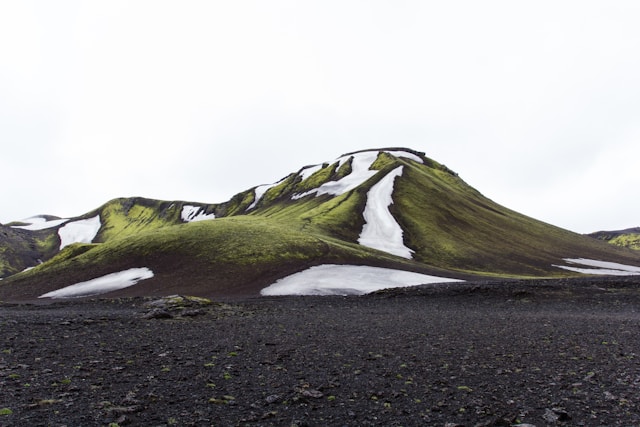Iceland, the land of fire and ice, is a destination that captures the imagination with its stunning landscapes, vibrant culture, and unique natural phenomena. But with its unpredictable weather and distinct seasons, determining the best time to visit can be challenging. This guide will help you navigate the ideal times to experience Iceland’s many wonders.
Iceland’s Seasons: An Overview
Iceland has four distinct seasons, each offering its own set of experiences. Understanding what each season brings can help you decide when to visit.
Spring (April to May)
Spring in Iceland is a time of rebirth and renewal. The days grow longer, temperatures begin to rise, and the landscape starts to green up after the long winter. This is a fantastic time to visit if you want to avoid the summer crowds and still experience a good mix of winter and spring activities.
Highlights:
- Northern Lights: There’s still a chance to catch the Northern Lights in early spring, especially in April.
- Milder Weather: While still chilly, the weather is more temperate, making it easier to explore outdoor attractions.
- Wildlife Watching: Puffins and other birds return to the cliffs, and it’s a great time to spot seals and whales.
Summer (June to August)
Summer is the most popular time to visit Iceland, and for good reason. The weather is at its warmest, the days are incredibly long, and the entire country comes alive with festivals and outdoor activities.
Highlights:
- Midnight Sun: Experience nearly 24 hours of daylight, perfect for those who want to maximize their sightseeing.
- Road Trips: All the roads, including the famous Ring Road, are open, making it the best time for driving around the island.
- Festivals: Enjoy local events like the Secret Solstice Festival and Icelandic National Day.
Autumn (September to October)
Autumn is a shoulder season in Iceland, offering a quieter, more introspective experience. The weather starts to cool down, but the landscapes are vibrant with fall colors, and there are fewer tourists.
Highlights:
- Northern Lights: As the nights grow longer, the Northern Lights make a strong comeback.
- Lower Prices: With fewer tourists, accommodation and flight prices drop, making it a budget-friendly time to visit.
- Autumn Colors: The countryside is ablaze with red, orange, and yellow hues, offering breathtaking views and photography opportunities.
Winter (November to March)
Winter in Iceland is a magical time, perfect for those who dream of snow-covered landscapes and the elusive Northern Lights. However, it’s also the most challenging season to visit due to short daylight hours and unpredictable weather.
Highlights:
- Northern Lights: Winter is prime time for Northern Lights hunting, with long, dark nights offering the best chances of a sighting.
- Winter Sports: Iceland’s winter is perfect for activities like ice caving, snowmobiling, and skiing.
- Christmas and New Year: Experience Icelandic holiday traditions, which include unique customs, celebrations, and festivities.
Factors to Consider When Planning Your Trip
Budget
Your budget is a key factor in determining the best time to visit Iceland. Summer is peak tourist season, so expect higher prices for flights, accommodations, and tours. If you’re looking to save money, consider traveling during the shoulder seasons (spring or autumn) when prices are lower, but the weather is still relatively mild.
Activities
What you want to do in Iceland will heavily influence the timing of your trip. For example, if seeing the Northern Lights is your top priority, then a winter or autumn visit is ideal. On the other hand, if you want to hike, road trip, or enjoy the Midnight Sun, summer is your best bet.
Weather Preferences
Iceland’s weather can be unpredictable, but generally, summer offers the mildest conditions. If you prefer warmer temperatures and longer days, then plan your visit between June and August. However, if you don’t mind the cold and want to experience Iceland’s winter wonderland, then a winter visit will be perfect.
Conclusion: The Best Time to Travel to Iceland
Ultimately, the best time to travel to Iceland depends on your personal preferences and what you hope to experience. Each season has its own unique charm and offers different opportunities. Whether you’re chasing the Northern Lights, exploring the rugged landscapes under the Midnight Sun, or simply soaking in the natural beauty, Iceland is a destination that promises unforgettable memories, no matter when you visit.

